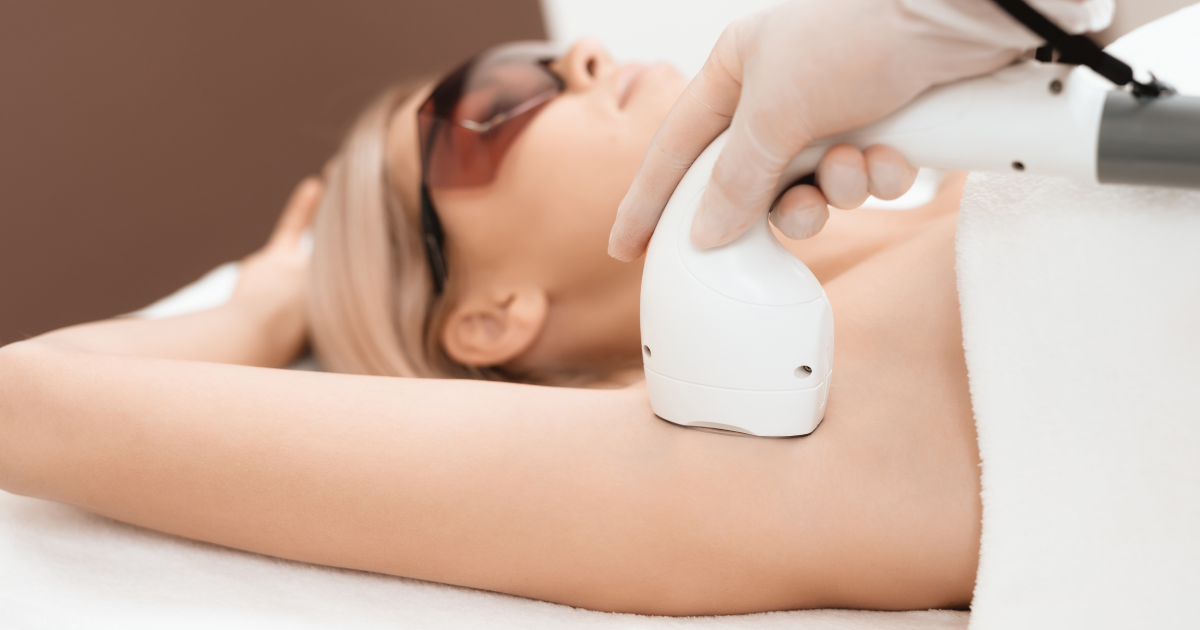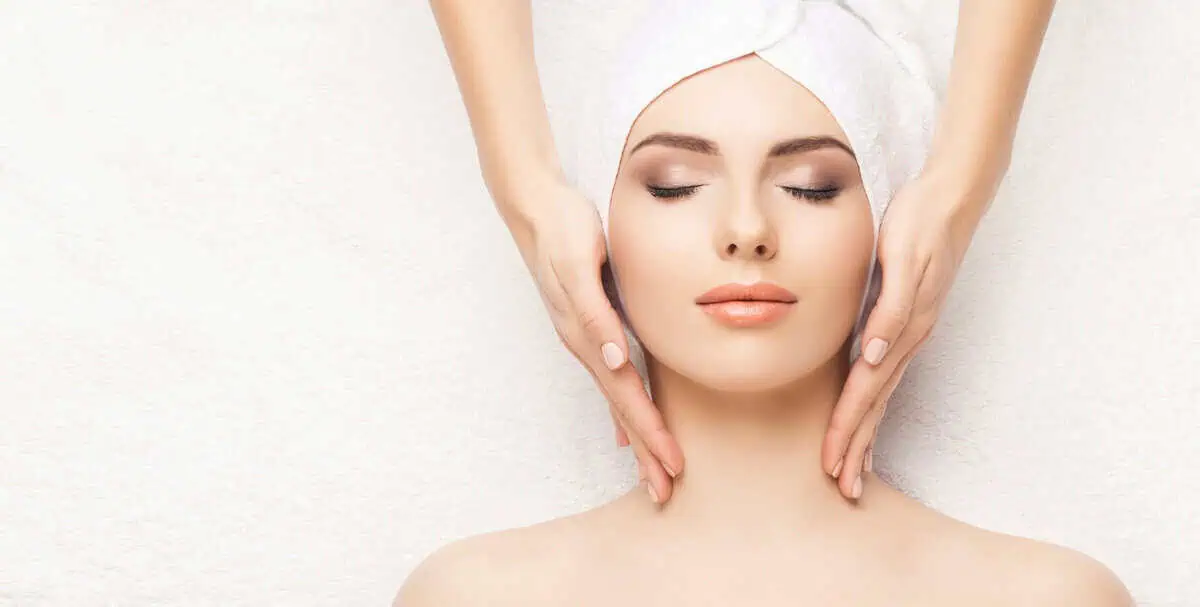Rosacea is a chronic skin condition that affects millions of people worldwide. It causes redness, swelling, and bumps on the face, making it a source of embarrassment and frustration for many. While there is no cure for rosacea, several ways exist to manage and reduce the symptoms. This article will discuss how to get rid of rosacea permanently.
Understanding Rosacea
Before we dive into the various treatment options available, it is essential to understand what rosacea is and what causes it. Rosacea is a chronic inflammatory skin condition that affects the face, primarily the cheeks, nose, chin, and forehead. Redness, flushing, pimples, and broken blood vessels characterize it. The exact cause of rosacea is unknown, but it is believed to be related to genetics, environmental triggers, and immune system dysfunction.
There are several subtypes of rosacea, each with its symptoms. The four subtypes of rosacea are:
- Erythematotelangiectatic rosacea: This subtype is characterized by persistent redness, flushing, and visible blood vessels.
- Papulopustular rosacea: This subtype is characterized by acne-like breakouts and redness.
- Phymatous rosacea: This subtype is characterized by thickened skin and irregular contours, especially around the nose.
- Ocular rosacea: This subtype affects the eyes, causing redness, dryness, and irritation.
Treatment Options for Rosacea
While there is no specific cure for rosacea, several ways exist to manage and reduce the symptoms. The treatment options for rosacea depending on the condition’s severity and subtype. Here is a list of the most effective ways to permanently get rid of rosacea:
- Avoid Triggers
One of the effective ways to manage rosacea is to avoid triggers that can cause flare-ups. Common triggers include spicy foods, alcohol, caffeine, extreme temperatures, and stress. Keeping a diary of outbreaks can help you identify your triggers and avoid them in the future.
- Use Topical Treatments
Topical treatments are medications that are applied directly to the skin. They are often the first line of defense for mild to moderate cases of rosacea. Topical treatments include metronidazole, azelaic acid, and ivermectin. These medications work by reducing inflammation and killing bacteria on the skin.
- Take Oral Medications
In severe cases of rosacea, oral medications may be necessary to control symptoms. Oral medications include antibiotics, such as doxycycline and minocycline, and isotretinoin. These medications work by reducing inflammation and killing bacteria in the body.
- Laser and Light Therapy
Laser and light therapy are effective treatments for rosacea. They target the blood vessels in the skin, reducing redness and inflammation. Intense pulsed light (IPL) and pulsed dye laser (PDL) are the most common laser and light therapy used for rosacea.
- Chemical Peels
Chemical peels are another effective treatment for rosacea. They work by removing the top layer of skin, reducing redness, and improving skin texture. Chemical peels can be mild or profound, depending on the severity of the condition.
- Microdermabrasion
Microdermabrasion is a treatment that uses a diamond-tipped wand to exfoliate the skin. It is an effective treatment for rosacea because it removes dead skin cells, reducing redness and improving skin texture.
- Moisturize
Moisturizing is an essential part of managing rosacea. Moisturizers help to soothe and hydrate the skin, reducing redness and preventing dryness. Look for non-comedogenic and fragrance-free moisturizers, as these are less likely to irritate.
- Protect Your Skin from the Sun
Sun exposure can worsen rosacea symptoms, so protecting your skin from the sun is essential. Use sunscreen with an SPF30 or higher and wear protective clothing, such as a hat and long-sleeved shirt, when outside.
- Practice Good Skincare Habits
Good skincare habits are essential for managing rosacea. Avoid harsh cleansers and scrubs; opt for gentle, fragrance-free products instead. Avoid rubbing or scrubbing the skin, as this can irritate it. Pat the skin dry with a soft towel after washing, and avoid using hot water.
- Seek Professional Help
If your rosacea is severe or does not respond to home remedies, it may be time to seek professional help. A dermatologist can help you develop a treatment plan tailored to your needs. They may recommend prescription medications, laser, light therapy, or other advanced treatments.
- Consider Dietary Changes
While the cause of rosacea is unknown, certain foods and drinks have been known to trigger flare-ups in some people. Common trigger foods include spicy foods, alcohol, and caffeine. Keeping a food diary and tracking your symptoms may help identify any trigger foods or drinks that worsen your rosacea. Some studies suggest that a diet high in anti-inflammatory foods like fruits, vegetables, and omega-3 fatty acids may help reduce inflammation and improve rosacea symptoms. Moreover, a diet high in processed foods and sugar may worsen inflammation and contribute to rosacea flare-ups.
- Manage Stress
Stress can be a significant trigger for rosacea flare-ups, so managing stress is an essential aspect of managing rosacea. While it may not be possible to eliminate stress from your life, there are many techniques you can use to help manage stress and reduce its impact on your rosacea symptoms. Some effective stress-reducing methods include deep breathing, meditation, yoga, tai chi, and other relaxation techniques. Regular exercise can also be an effective stress reducer, but choosing low-impact activities that won’t exacerbate rosacea symptoms is essential.
Conclusion
Rosacea can be a challenging condition to manage. Still, by avoiding triggers, practicing good skincare habits, and seeking professional help when necessary, you can effectively manage your symptoms and even achieve permanent relief. Additionally, making dietary changes and managing stress can help reduce flare-ups’ frequency and severity.
If you are struggling to manage your rosacea, it’s essential to seek the help of a qualified dermatologist. At Outer Banks Dermatology, we offer a range of advanced treatments and personalized care to help our patients achieve optimal skin health. Our experienced dermatologists and skin care professionals can help you develop a customized treatment plan that addresses your unique needs and goals.
Don’t let rosacea control your life. Contact Outer Banks Dermatology today to schedule a consultation and take the first step toward clear, healthy skin.







